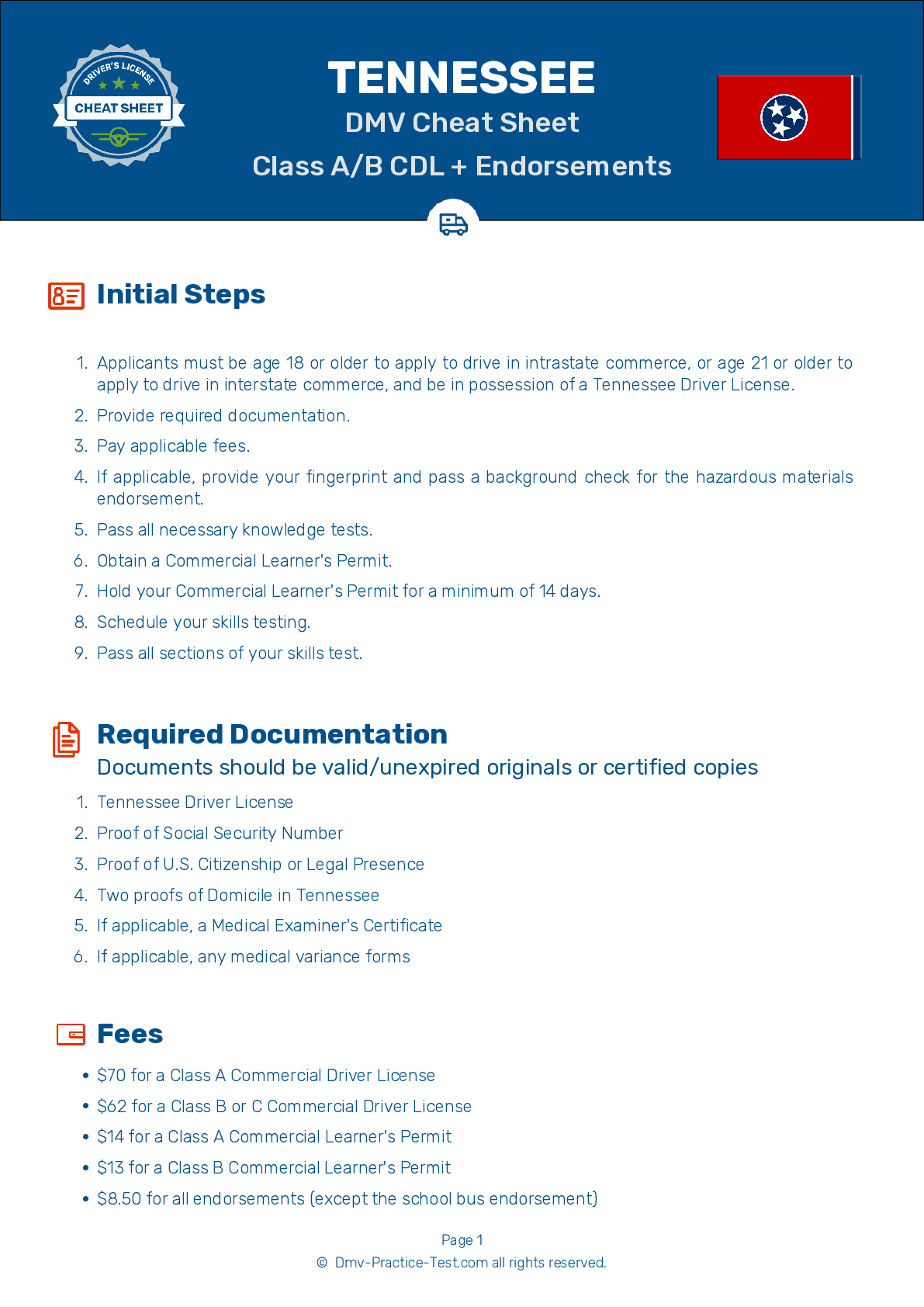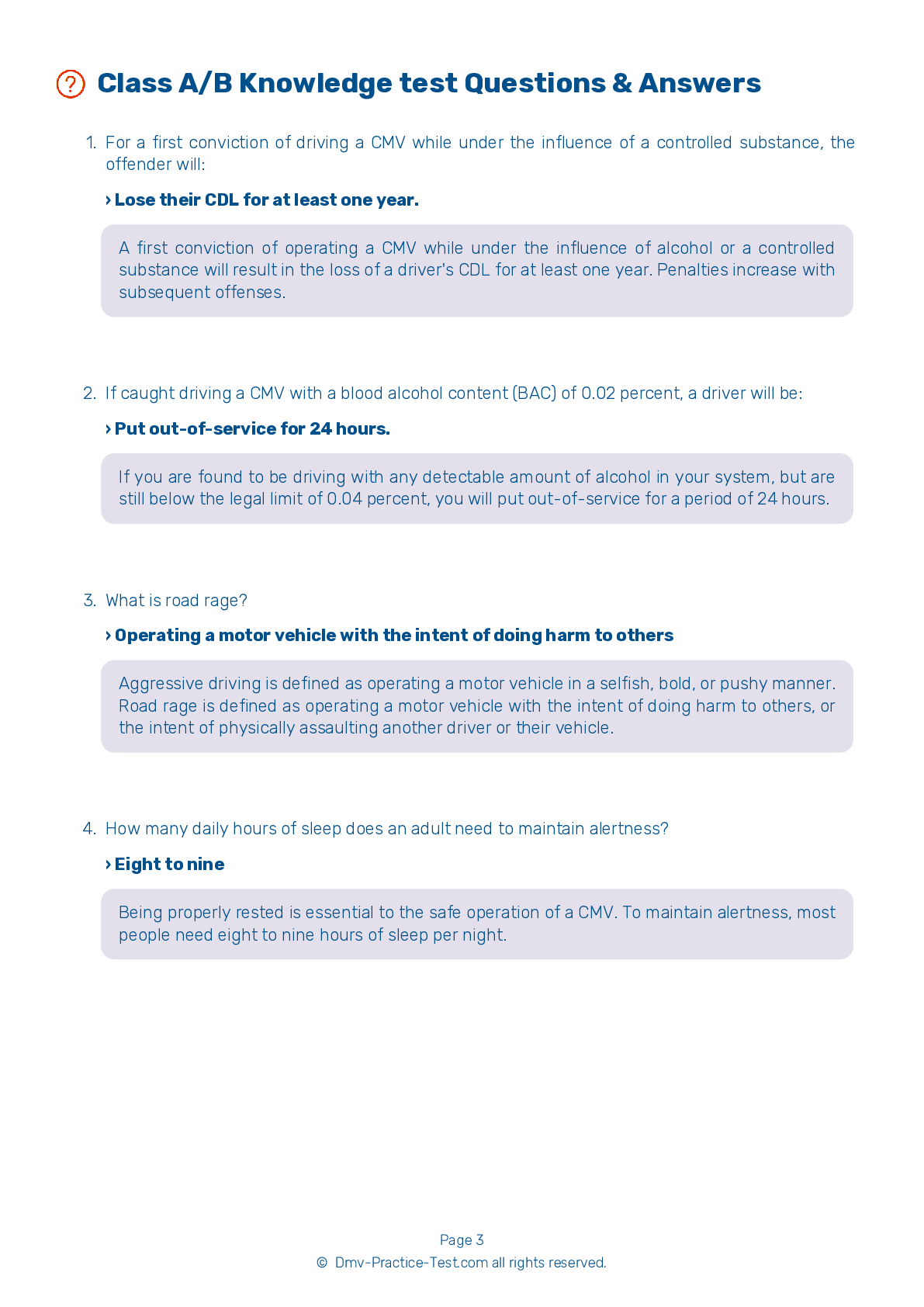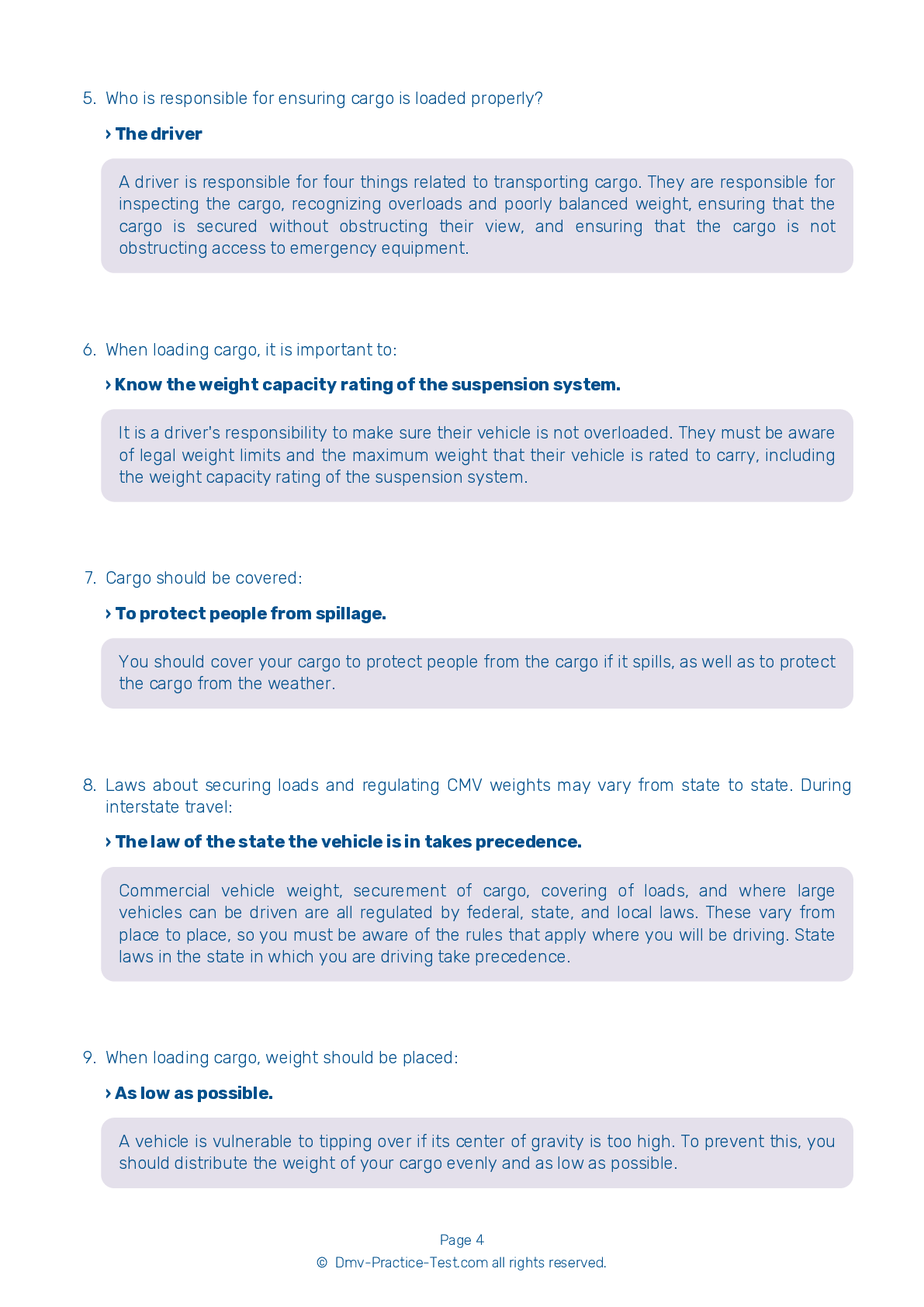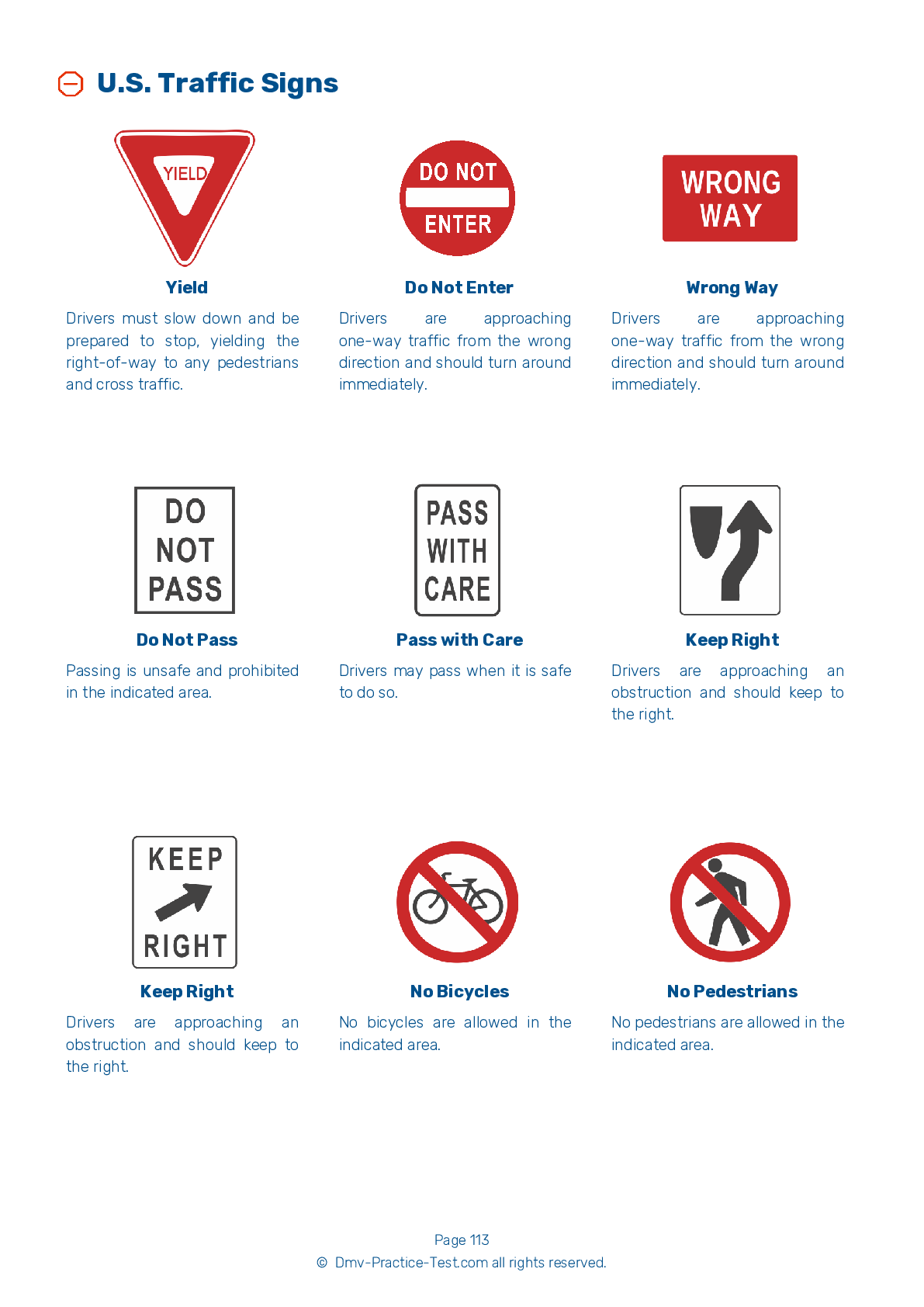Class B Driving Test | Tennessee 2026 #1 Page 3 of 7
Train for FREE online with our Tennessee class B license test. The official exam test consists of several obligatory parts, with all of them checking your knowledge of different blocks of road rules. If you need to obtain a TN CDL class B permit in 2026, practice as much as possible. Free sample tests published on our website will help you check and improve your knowledge and boost your grades. Please bear in mind that CDL class B requirements may vary from state to state.
15 . How soon after starting a trip must cargo securement be checked?
Cargo should be inspected before beginning a trip, within the first 50 miles of the trip, and every three hours or 150 miles traveled thereafter. The driver of a truck transporting cargo is responsible for the cargo being safely secured throughout the trip.
16 . A posted maximum speed limit:
You should never drive faster than posted speed limits. For safety, you should slow down as conditions require.
17 . If caught driving a CMV with a blood alcohol content (BAC) of 0.02 percent, a driver will be:
If you are found to be driving with any detectable amount of alcohol in your system, but are still below the legal limit of 0.04 percent, you will put out-of-service for a period of 24 hours.
18 . When driving in hot weather:
Because air pressure increases as air expands in the heat, it is important to monitor your tire pressure when driving in very hot weather. To prevent the engine from overheating, there must be an adequate amount of oil in the engine, as well as enough water and antifreeze in the cooling system. Antifreeze is helpful for the engine in both hot and cold weather.
19 . Which of the following is a time when the vehicle should be downshifted?
It is particularly important that you downshift before starting down a hill or entering a curve.
20 . When driving in fog, you should:
If you must drive in fog, you should use your low beam headlights and fog lights to maximize your visibility. Using high beam lights will only make it more difficult for you to see.
21 . During a trip, which of the following does not need to be checked regularly?
During a trip, you should regularly monitor the instruments, gauges, meters, and mirrors. Check the tires, cargo, and lights for signs of trouble.
See the exact questions that will be on the 2026 Tennessee DMV exam.
99.2% of people who use the cheat sheet pass the FIRST TIME
Lillian MCcranie explains how our CDL study guide was helpful in passing the exam and recommends it to everyone.
Cameron tells us how he purchased the CDL exam, and found it to be a useful tool which helped him pass the exam and find a job.



